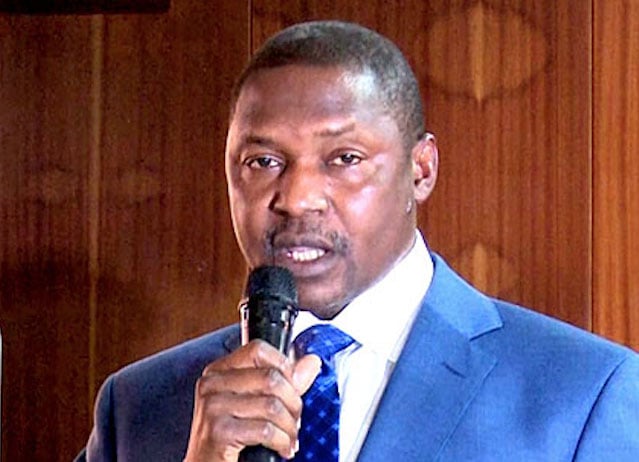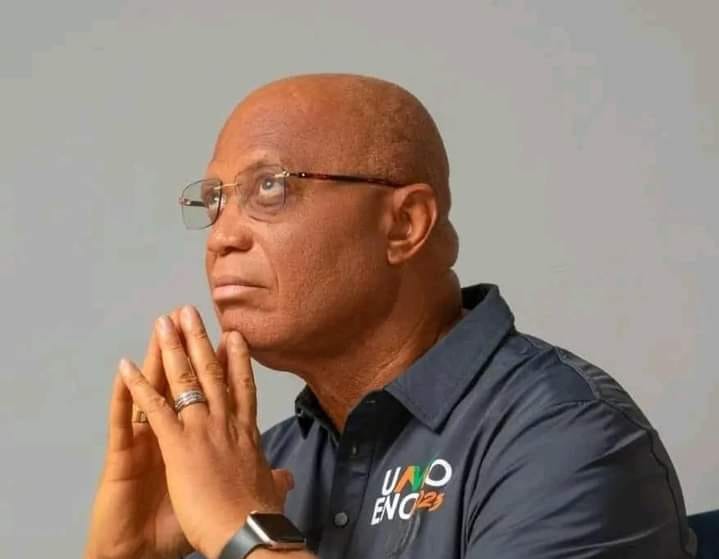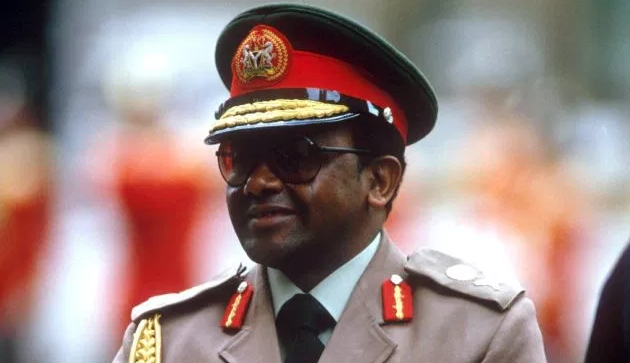It is becoming commonplace to hear of health workers getting assaulted by patients or their relatives. For the workers who are usually at the receiving end of the stick, the incidents are not only vividly remembered but negatively affect the ease with which they should ideally carry out their duties.
According to the World Health Organisation (WHO), health workers all over the world are at high risk of violence with between 8 to 38 percent of them suffering physical violence at some point in their careers.
The global organisation noted that not only do the health workers feel a negative impact on their psychological and physical well-being, but their job motivation is also greatly affected.
“As a consequence, this violence compromises the quality of care and puts healthcare provision at risk. It also leads to immense financial loss in the health sector,” the WHO said.
Advertisement
NIGERIA IS NOT AN EXCEPTION
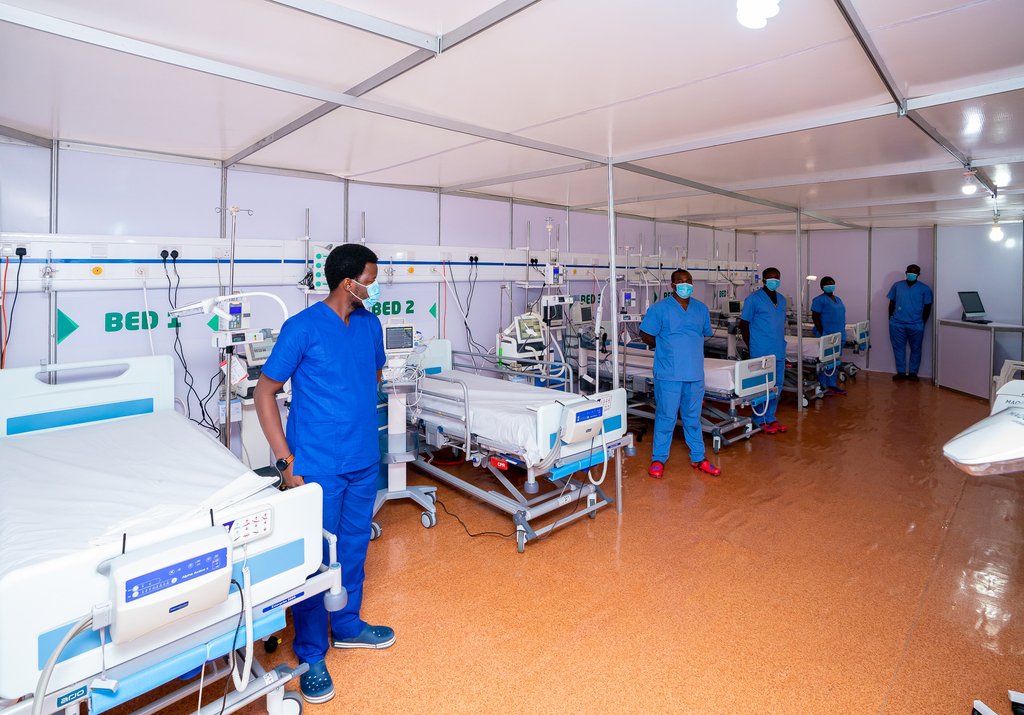
As far as the violence meted on health workers is concerned, Nigeria is not an exception as there are many reported cases in the country.
Advertisement
In February 2020, a relative of an aged patient was said to have assaulted a medical officer at the University of Medical Sciences Teaching Hospital (UNIMEDTH), Ondo state, inflicting injuries on him. The reason? The relative was said to have been dissatisfied with the way the medical officer handled the patient.
Doctors at the hospital staged a protest to condemn the incident and also embarked on a strike.
In August 2022, a female gynecologist sustained a brain injury as a result of an attack by a patient’s family member in Abuja, the federal capital territory.
Four months after, an angry father and son, aggrieved over the loss of their 53-year-old family member, reportedly attacked a medical doctor and a nurse at the Federal Medical Centre, Abeokuta, Ogun state.
Advertisement
More recently, a doctor was reportedly assaulted by relatives of a patient at the University of Ilorin Teaching Hospital, Kwara state, which lead the Association of Resident Doctors (ARD) at the hospital to commence a five-day strike.
A more devastating case was that of the killing of Uyi Iluobe, a medical doctor in Olive Clinic, Oghara, Delta state, on December 31, allegedly by relatives of a patient who had died from a gunshot wound.
Although the police insisted the murder was carried out by cultists, the news spurred outrage on social media with some health workers sharing their own experiences of violence in their workplace.
A Twitter user narrated how he was almost beaten up by relatives of a child who had died in the hospital where he worked.
Advertisement
According to the user, he had administered the child, who was visibly malnourished and had developed sepsis, with required medication. Unfortunately, the child did not survive.
“Immediately we told them the girl was dead, the hefty-looking husband with his brothers rushed to grab me; the matron blocked them and my chiefs took me inside the residents call room and locked the door. I could hear them shouting that they would kill me. I was terrified,” he wrote.
Advertisement
“I had to be smuggled home the next day. They believed the drug I gave a severely malnourished child with severe sepsis killed her when I did my absolute best to save her. Now, this is the plight of every average Nigerian doctor; your life is always at risk if a patient dies.”
“ATTACKS WORSENING BRAIN DRAIN IN HEALTH SECTOR”
Advertisement
Uche Ojinmah, president of the Nigerian Medical Association (NMA), decried the increasing attack on health workers and blamed it on the agitation of Nigerians owing to the current economic situation and challenges in the country.
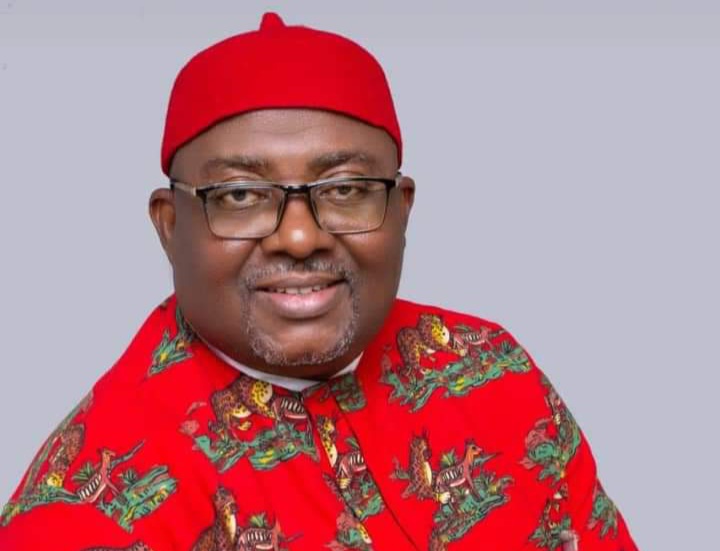
While pointing out that the attack on health workers is a worldwide phenomenon, Ojinmah said the reason aggrieved patients and their families take to violence is the lack of trust in security agencies.
Advertisement
“With the way things are going now, everybody has gone mad. The government is not living up to its expectation and that now makes people take law into their own hands. Nigerians have a mistrust of security agencies and do not have faith in them to do the right thing,” he told TheCable.
“You can also not rule out the poor financial situation in the country. People are generally in a state of agitation. If you do a general assessment, this problem may not only be in the health sector, it will be everywhere.”
The relocation of doctors and other health workers to foreign countries offering better pay and working conditions has been a major source of concern in Nigeria, with the doctor-to-patient ratio set at one to 5,000.
According to the register of the General Medical Council of the United Kingdom (UK), the number of Nigerian doctors practising in the UK jumped from 7,167 in 2019 to 9,203 in 2021, showing an increase of 28 percent within two years.
With the growing shortage of health workers, do the ones who are still available have to contend with the risk of attacks?
“We are facing one of the worst brain drain; so I think the government should take this one seriously by first investigating the case in Oghara and bringing the culprits to book,” Ojinmah said.
WHY VIOLENCE AGAINST HEALTHCARE WORKERS SHOULD BE PUNISHED
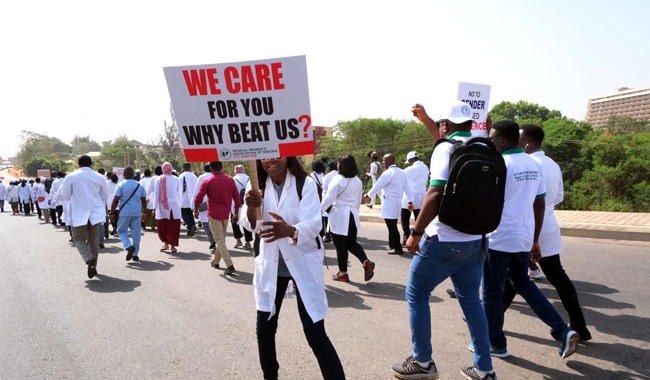
The medical association’s president added that to the best of his knowledge, nobody has ever been prosecuted for attacking healthcare workers since they end up pleading for the matter to be dropped.
“You would expect that the police would take it more seriously, but it is not so. I cannot say of any case where anyone who assaulted a health worker was tried in court. I think the government needs to step up to its job and sensitise people that it is a crime to attack a health worker,” Ojinmah said.
“Government can also set up the emergency care section of the basic healthcare fund. They are supposed to take care of emergencies concerning Nigerians within the first 48 hours. Government should also expand health insurance to make it easy for Nigerians to access health care.
“I also think the national assembly should separate violence against health workers from the normal criminal code and create an act that makes it punishable. When it is separated and made specific, people will understand the danger there.”
Add a comment
